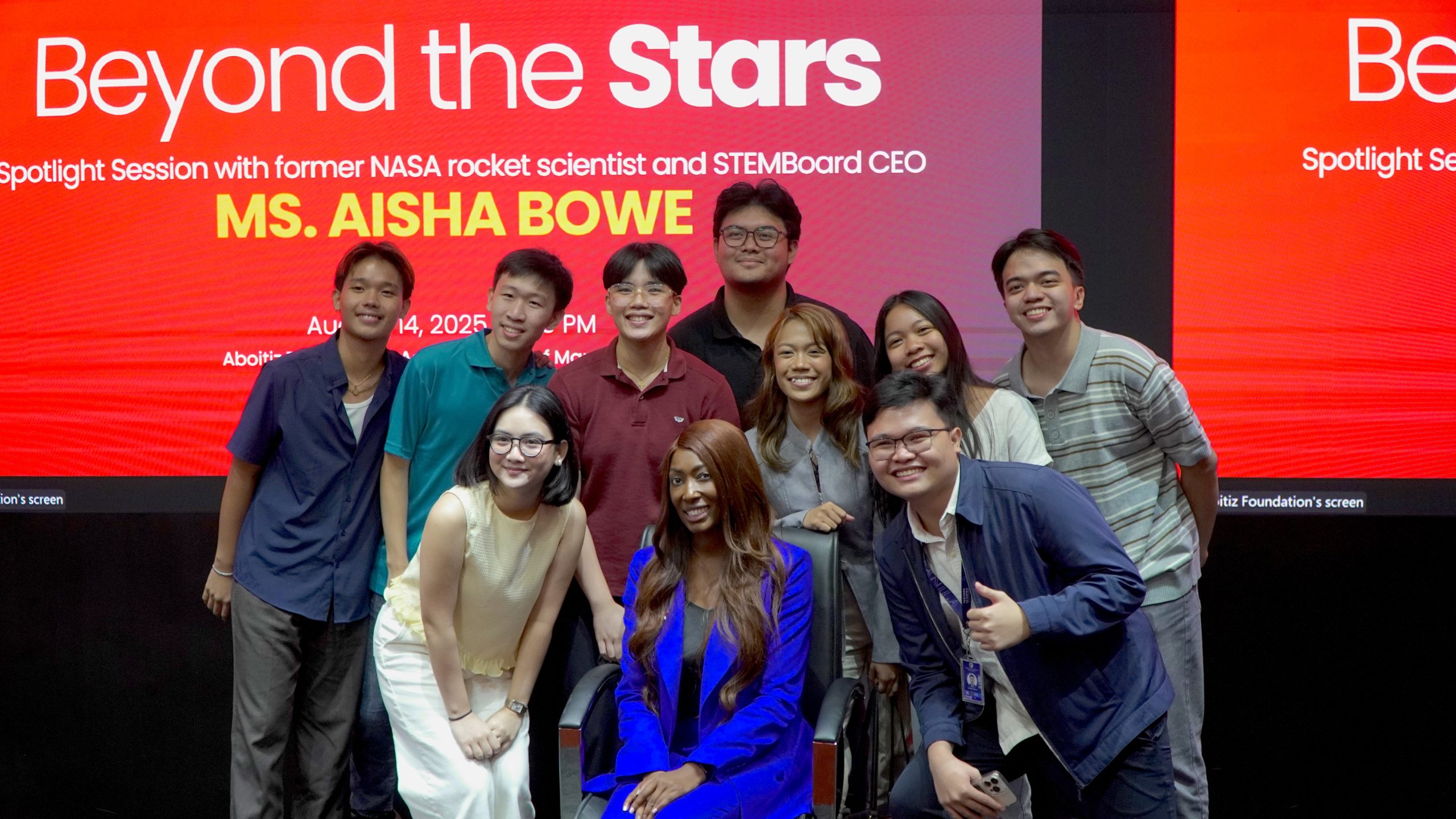by Windsor John Genova
Originally published in the Daily Tribune
The special way that the Aboitiz Foundation shapes its scholars into future leaders played out during the Philippine Space Week when it hosted a meetup with former rocket scientist at the United States space agency NASA, aerospace entrepreneur, and citizen astronaut Aisha Bowe.
The encounter and interaction of nine students under the Aboitiz Future Leaders Scholarship Program with Bowe at the Aboitiz Tech Space, Asian Institute of Management (AIM) in Makati City on August 14, 2025 proved inspirational. As one of the all-female passengers who flew to space aboard a Blue Origin spacecraft in April, Bowe shared her extraordinary experience, including setting up her own space engineering company STEMBoard and startup LINGO.
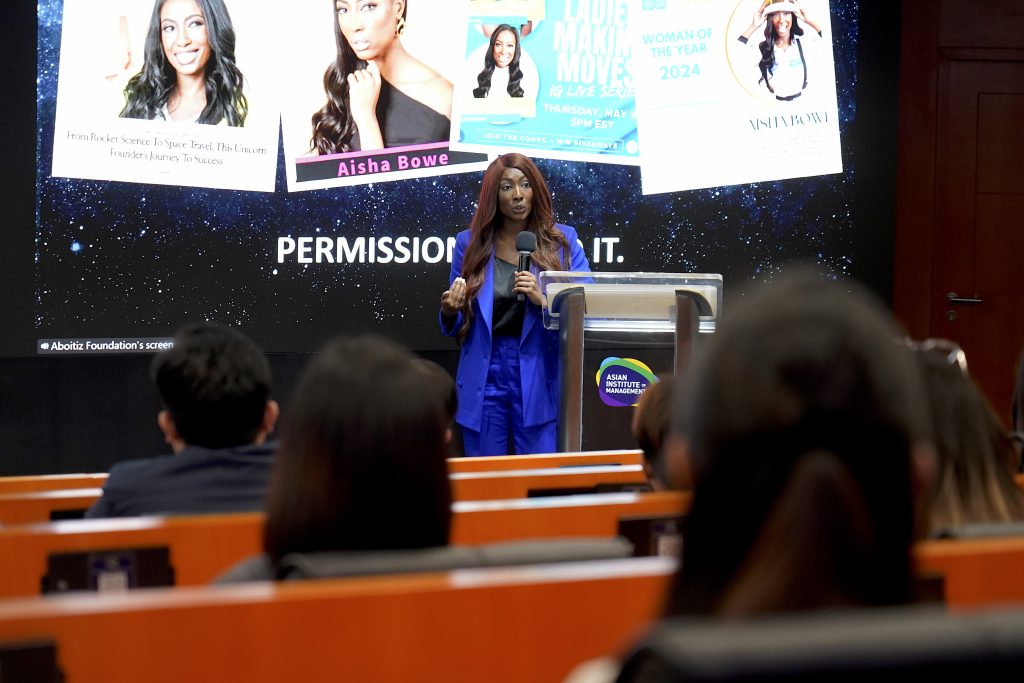
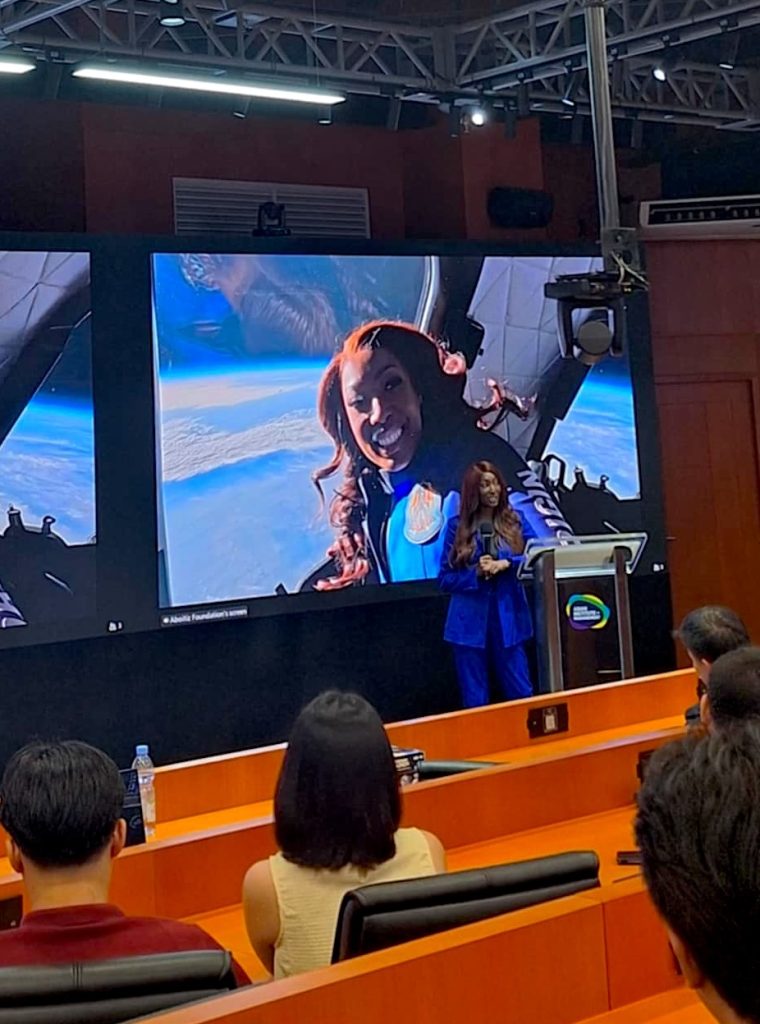
Advice from the science, technology, engineering, and mathematics (STEM) education advocate was also helpful in guiding the scholars through their academic journey to become the next generation of engineers and scientists.
Aboitiz Foundation president Ginggay Hontiveros-Malvar stressed the opportunity of connecting scholars with people like Bowe, who believe in learning, innovation, and creating meaningful change—values that the organization tries to live every day.
“At the Aboitiz Group, we are proud to be the Philippines’ first techglomerate, combining our strong legacy in business with the speed and creativity of technology. Our goal is to continue to harness innovation, not just for progress, but also, very importantly, for social good,” she said in a speech welcoming Bowe. “So it’s really all about how do we help solve real problems, how do we help uplift communities, and at the end of it all, shaping a better future for all.”
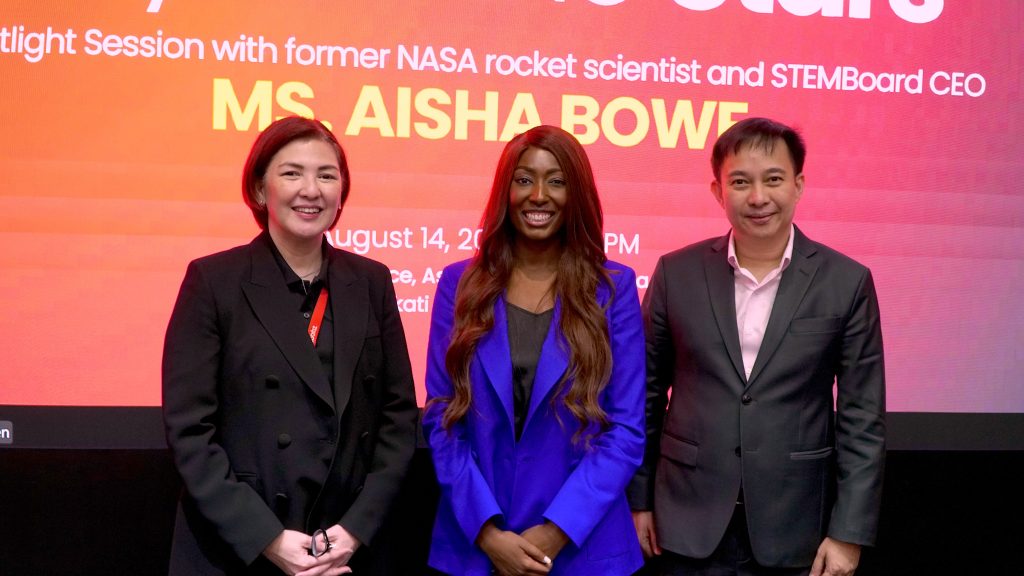
Three Goals
At 18, Bowe had three dreams that felt too far out of reach.
The first was to go to a world-class university.
The second was to study something hard.
“I looked at all the majors of the school I hoped to go to, which was the University of Michigan, and I saw aerospace. I mean, it was at the top of the list. And I was like, wow, that sounds like it’s really hard. And if I can go to community college and I can study aerospace, then I will know that I’m smart. And that when I introduce myself, when I become a professional, when I become an adult, I will be proud for as long as I can.”
The third goal was to work at NASA “because I didn’t know where aerospace engineers went other than to work on cars.”
Bowe went on to start her professional career as an aerospace engineer in a small spacecraft division at NASA Ames in Silicon Valley, California.
STEMBoard and LINGO
Bowe worked at NASA for six years before putting up her own company, at the suggestion of a Northrop Grumman executive that she use her aerospace engineering degree for business.
The CEO of STEMBoard established the business 12 years ago “without a single dollar venture capital investment.”
“We have been recognized by the US government for excellence in small business contracting. I have employees in five states,” she said.
LINGO is the second company that Bowe founded. The name refers to her hands-on coding and microcontroller kit that empowers students to kickstart their STEM journey.
“I have about 40 engineers that work for me on a daily basis in this first business. And what I asked the team to do was to go into the community and donate a portion of their time to give back and work with schools and students who maybe didn’t have STEM resources.”
The volunteers saw that coding languages taught to children in school were not very useful, and that they should learn electronics instead—being able to build with their hands, solve problems, and work in teams.
In the last year and a half, Bowe and her six-man Lingo team handed the learning kits to over 14,000 learners in select countries. She is introducing it in the Philippines.
“My company and the work we do with Lingo is designed to teach people about earth monitoring, about sensing, about building workforce capacity and capability so that they can actually become the workforce that meets these goals,” Bowe said.
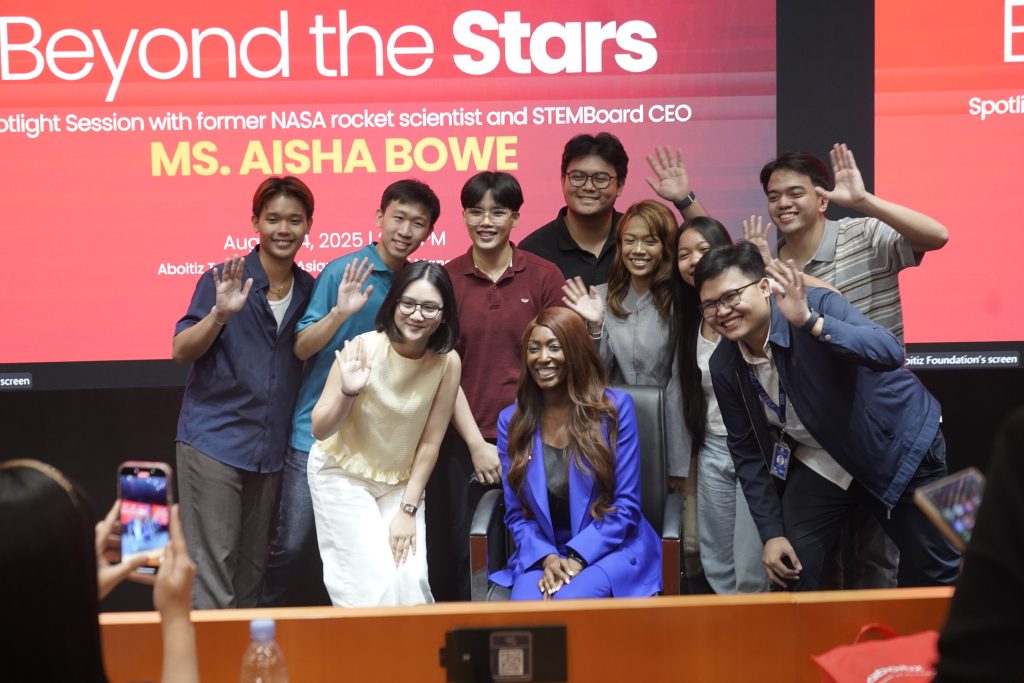
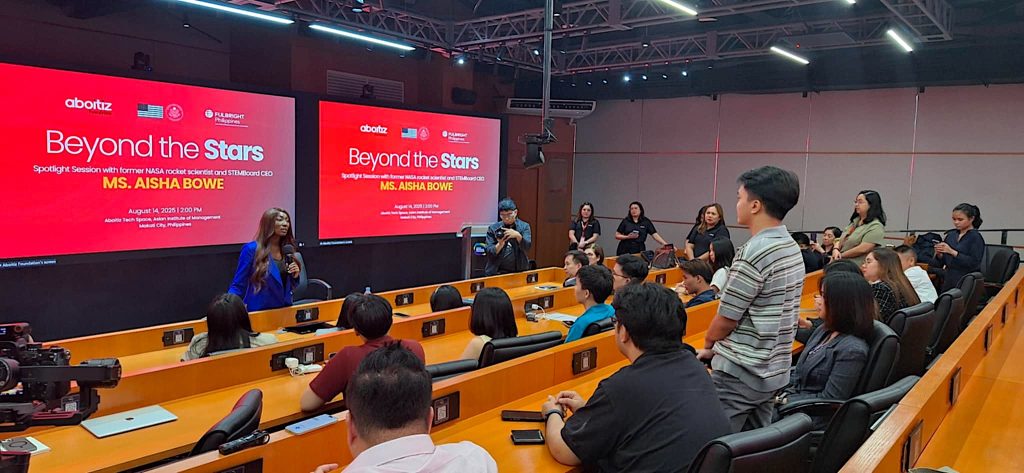
Nanosat and Rocket Science
Bowe shared the most exciting projects she had done: nanosats. The shoebox-size satellites, according to her, caught her interest because it was an idea that seemed too small to succeed. “It actually became an industry segment that continues to explode,” she said.
Bowe recalled choosing to work on nanosats for her masteral degree at the University of Michigan.
“I don’t want to go to graduate school and just study theory. I want to work on something that will contribute to society in a way that it doesn’t know yet.”
She added, “No one thought that these small satellites could do much of anything. They thought they were going to become orbital debris. And me, being an undergrad, I didn’t care.”
Bowe also worked on flight trajectory optimization for commercial aircraft.
Asked about the future of suborbital flights like what she experienced in April, Bowe said she foresees it becoming as routine as flying in the not-too-distant future. “It will truly, in my opinion, become the next means of transportation for a lot of people around the world,” she said.
Pride of the Bahamas
Bowe made history for being the first Bahamian in space. She joined celebrities Katy Perry, Gayle King, and Amanda Nguyễn in Blue Origin’s NS-31 mission in April.
Her father died on 6 January and missed hearing the announcement that she was going to fly to space. But he knew as early as 2022 that she had signed up for a seat in the flight.
“I flew in fighter jets. I jumped out of planes, which was kind of scary. I did the hypoxia training. I trained in the only human-rated centrifuge in North America that has trained over 500 astronauts. I literally read the human spaceflight regulations,” she said, recalling her preparation while running her businesses.
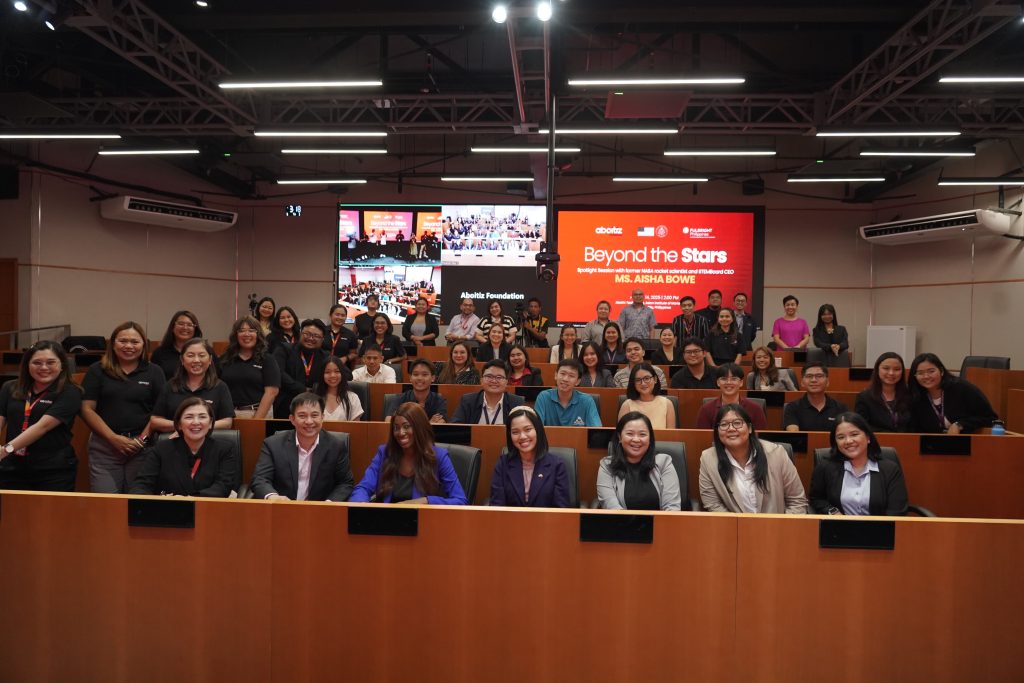
Bowe wants to fly to space again.
“I am planning to go back. I don’t know if I could ever be okay with not seeing what I saw again. And when I see it the next time, I need to see it for longer. And I want to be able to sit with it (Earth) and really take it in because it’s magnificent. And there’s absolutely nothing like seeing our Earth rotate in the air and sky.”
Asked what advice she could give to engineering students who want to pursue business as well, Bowe said they should volunteer for a startup.
“If you really want to see how to start something, go work for a startup. Go see all of their challenges,” she said, adding that startup founders never say no to free help. “And then go work for a larger organization. And once you’ve had that experience, go build your own thing.”
“If you are interested in changing the future, my advice for you is to be yourself, the world will adjust,” Bowe told the scholars. “When you are an innovator, when you are the first of your kind, sometimes you may have ideas that feel out of reach. But stay with them, one day they’ll become reality.”
Prof. Christopher P. Monterola, Aboitiz chair in data science of the Aboitiz School of Innovation, Technology and Entrepreneurship (ASITE) at AIM, described Bowe as the heartbeat of innovation and the courage to push boundaries and test the impossible.
Monterola added, “Her journey from dreamer to being a space player is living proof that when you dare to look beyond the horizon, past the clouds and into the infinite, something great can happen.”

